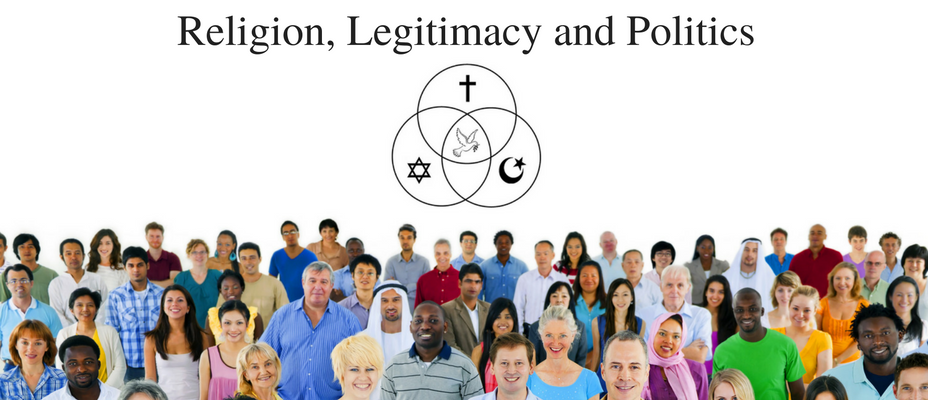Rudy Barnes, Jr.
My
apologies to Robin R. Meyers, author of Saving Jesus from the Church
(HarperOne 2009). I have adapted the
title of his excellent book for this commentary. But just what is this church that threatens
both Jesus and America? It is so diverse
as to defy description, but since 81% of white Christians voted for Donald
Trump last November, they represent a church that has abandoned the moral
teachings of Jesus and America’s need to provide for the common good.
Thomas
Jefferson once referred to the teachings of Jesus as the most sublime moral code ever designed by man. But today most white Christians have
subordinated the teachings of Jesus to exclusivist doctrines of salvation, and
many, if not most, follow evangelists like Franklin Graham, Jerry Falwell, Jr.,
and Paula White, who preach a prosperity gospel of worldly success. Having abandoned Jesus as the icon of their
faith, they elected Donald Trump as our President.
The
moral teachings of Jesus are summed up in the
greatest commandment to love God and our neighbors as we love ourselves,
and in the story of the good Samaritan
Jesus taught that our neighbors include those of other races and religions. How could so many people who call themselves
Christians reject the moral teachings of Jesus and vote for a rude, crude,
nativist and narcissist who has no humility and condemns all who question his
alternative facts?
Over
70% of Americans claim to be Christians.
They are the church, and unless and until they restore the primacy of
the teachings of Jesus over the false doctrines of those charlatan evangelists
who supported Donald Trump, the church will have no legitimacy. Those Christians who rejected discipleship to
support Donald Trump made their religion seem ridiculous. If the church elected Donald Trump president,
the question is how to save America from the church.
The
solution is simple, but difficult—just as loving our neighbors is simple but
difficult. For the church to be
reconciled to God’s word, it must make the teachings of Jesus The Church’s One Foundation. That’s a problem in a world that defines success
based on wealth and power. Following
Jesus doesn’t bring worldly success or popularity, and the cost of discipleship can be great, as it was for Dietrich
Bonhoeffer. And for politicians, discipleship
doesn’t win elections.
Winning
elections in America involves competition at its worse, and cooperation is rare
with our polarized partisan politics. Politics
is about power, and power corrupts. There
is little place for humble service among those seeking political power, and
little hope for a politics of reconciliation in our polarized politics. The best we can hope for in our flawed democracy
is to elect politicians who are committed to serving the common good, not their
own good.
Only voters can save America from the
church. Unlike politicians, voters can
follow the teachings of Jesus and seek a politics of reconciliation. But most Christian voters are not good
disciples and are poor stewards of their democracy. They worship Jesus as their personal savior, but
do not follow his teachings as the word of God.
Unless and until Christians become better disciples and stewards of
their democracy, they cannot save either their church or America.
Notes
and earlier commentary on related topics:
Thomas Jefferson embraced the moral
teachings of Jesus but expressed contempt for the distortions and misuse of
those teachings by Christian religious leaders of his day. Jefferson wrote Henry Fry on June 17, 1804:
"I consider the doctrines of Jesus as delivered by himself to contain the
outlines of the sublimest morality that has ever been taught; but I hold in the
utmost profound detestation and execration the corruptions of it which have
been invested by priestcraft and kingcraft, constituting a conspiracy of church
and state against the civil and religious liberties of man." Thomas Jefferson, The Jefferson Bible,
edited by O. I. A. Roche, Clarkson H. Potter, Inc., New York, 1964, at p 378;
see also Jefferson’s letter to John Adams dated October 13, 1813, at pp 825,
826; Jefferson's commentaries are at pp 325-379. While many Christians considered Jefferson a
heretic, Jefferson wrote of himself: “I am a Christian in the only sense in
which he [Jesus] wished anyone to be; sincerely attached to his doctrine in
preference to all others and ascribing to him every human excellence, believing
he never claimed any other.” (p 334) For
Jefferson, being a Christian meant following Jesus as God’s word rather than
worshiping him as God’s son. He
emphasized the moral teachings of Jesus over the mystical, and in so doing
emphasized discipleship over orthodox Christian beliefs, a distinction
elaborated by Robin R. Meyers in Saving Jesus from the Church: How to Stop
Worshiping Christ and Start Following Jesus, HarperCollins, 2009. Jefferson cut and pasted selected portions of
the gospel accounts from four Bibles in four languages: Greek, Latin, French,
and English (from the King James translation).
His Bible illustrates the moral dimension of religion and its
role in shaping legitimacy in US culture.
Jon Meacham affirmed Jefferson’s prominent role in shaping American
values in American Gospel, Random House, New York, 2006 (see pp 56-58,
72-77, 80-86, 104, 105, 247-250, 263, 264; reference to Jefferson’s Bible
at p 389); see also Meacham, Thomas Jefferson: The Art of Power, Random
House, New York, 2012, pp 471-473. See
also, Introduction to The
Teachings of Jesus and Muhammad on Morality and Law: The Heart of Legitimacy,
at page 10, note 2 at https://drive.google.com/file/d/0B3gvZV8mXUp-aTJubVlISnpQc1U/view.
On how religion is ridiculous and corrupts our politics. see http://www.religionlegitimacyandpolitics.com/2017/01/religion-and-reason-redux-religion-is.html;
On discipleship in democracy: a test of faith, legitimacy and politics.
see http://www.religionlegitimacyandpolitics.com/2016/12/discipleship-in-democracy-test-of-faith.html.
On the greatest commandment as a
common word of faith for Jews, Christians and Muslims, see http://www.jesusmeetsmuhammad.com/2015/01/jesus-meets-muhammad-is-there-common.html.
On exclusivist evangelical
Christian doctrines, see promoting
religion through evangelism: bringing light or darkness? at www.jesusmeetsmuhammad.com/2015/02/promoting-religion-through-evangelism.html.
On differing Christian beliefs in
Jesus, see Jesus: a prophet, God’s only
son, or the Logos at
